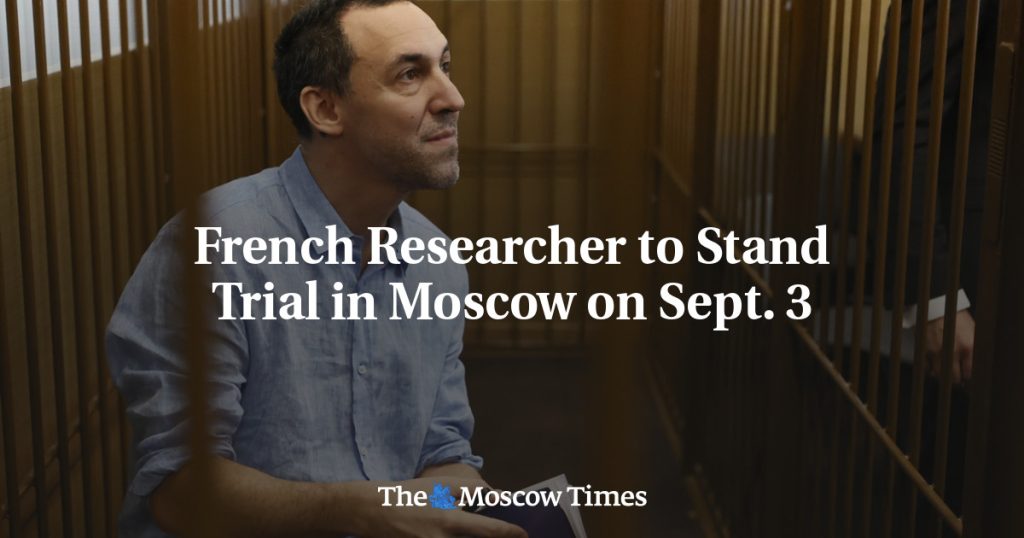The French citizen, Laurent Vinatier, is set to go on trial in Moscow after being accused of gathering information about the Russian military and violating the country’s laws on “foreign agents.” He was arrested in June and faces up to five years in prison if convicted. France has called for his release, stating that he has been arbitrarily detained. Vinatier, who admitted to violating Russian law and apologized during previous court hearings, is an adviser with the Geneva-based Center for Humanitarian Dialogue and a researcher on Russia and other post-Soviet countries.
The Moscow Times, an independent journalism outlet, is facing challenges in Russia with the authorities labeling them as an “undesirable” organization and a “foreign agent.” The publication is committed to providing accurate and unbiased reporting on Russia, despite attempts to silence independent journalism. The Moscow Times is seeking support from readers to continue their work, with contributions starting from just $2 a month. By supporting The Moscow Times, readers are defending open, independent journalism in the face of repression and standing with the journalists in their pursuit of truth.
Vinatier’s case highlights the restrictions on gathering and sharing information on Russia’s military or security services in accordance with Russian law. Any individual involved in such activities is required to register with the authorities as a “foreign agent.” The accusations against Vinatier suggest that he may have collected military information that could be used against Russia by foreign states. The upcoming trial will shed light on the specifics of the charges brought against him and the potential implications of his actions as perceived by Russian authorities.
The involvement of foreign individuals or organizations in Russia’s affairs, particularly concerning military and security information, is closely monitored and regulated under Russian law. The requirement for foreign agents to register with the authorities aims to prevent unauthorized dissemination of sensitive information that could jeopardize national security. Vinatier’s case serves as a reminder of the legal boundaries that govern such activities in Russia and the potential consequences for those found in violation of these laws. The trial will provide insight into the extent of his involvement and the implications of his actions on diplomatic relations between France and Russia.
Russia’s crackdown on independent journalism, as evidenced by the targeting of The Moscow Times, reflects a broader trend of suppressing dissenting voices and critical reporting within the country. The authorities’ accusations of discrediting the decisions of the Russian leadership point to a crackdown on media outlets that offer alternative perspectives and challenge the official narrative. By supporting independent journalism, readers can contribute to the defense of free speech and press freedom in Russia, standing in solidarity with journalists facing repression and censorship.
As the trial of Laurent Vinatier approaches, the international community will be closely watching the proceedings to ensure a fair and transparent legal process. France’s calls for his release underscore the importance of upholding due process and protecting the rights of individuals accused of violating foreign agent laws. The outcome of Vinatier’s trial will not only impact his future but also have broader implications for freedom of information and the boundaries of cross-border research and advocacy in Russia. By advocating for fair treatment and due process in Vinatier’s case, France and other concerned parties aim to defend human rights and uphold international standards of justice.














